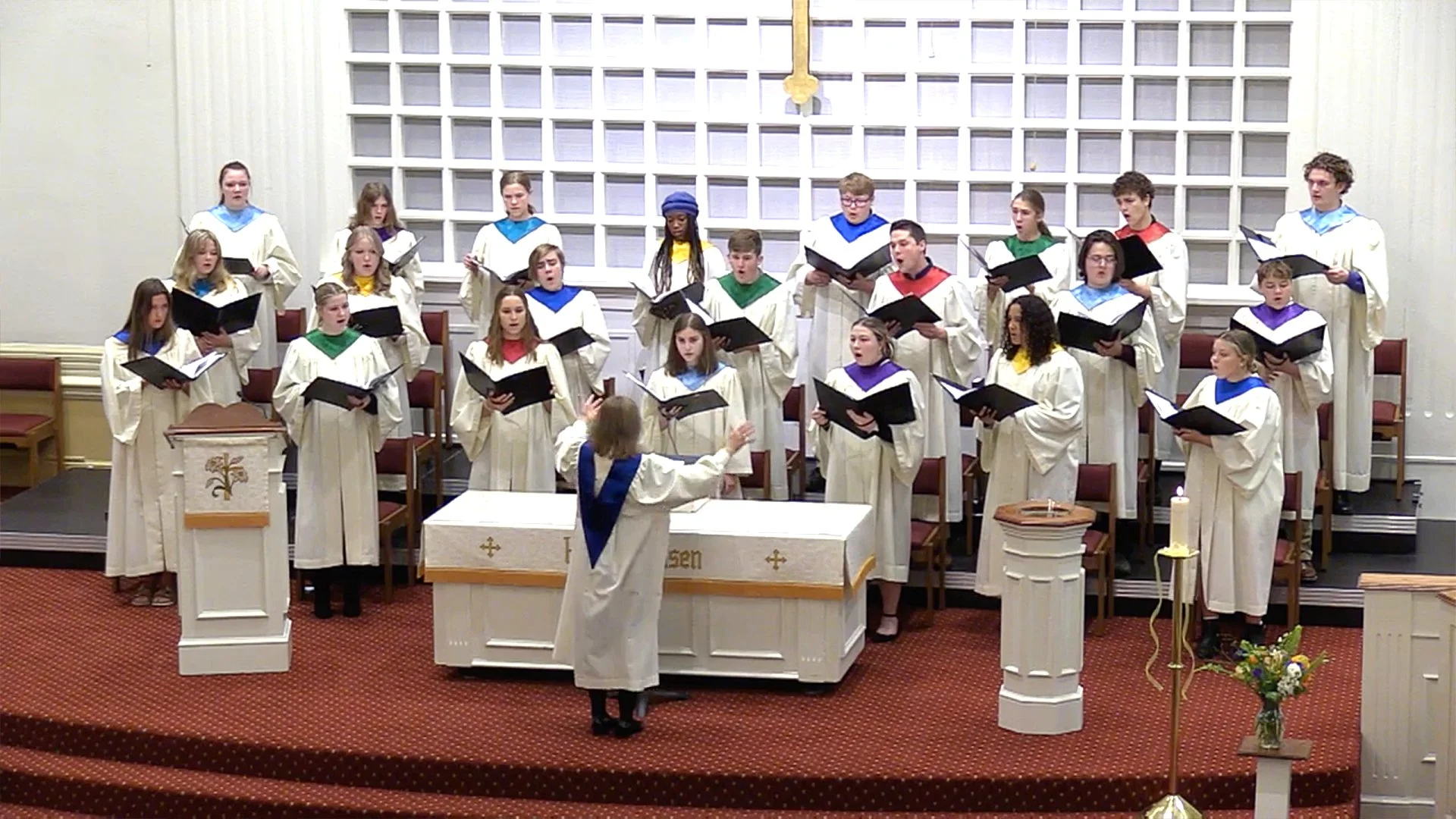Hymn of the Week: December 18, 2023
Lo, How a Rose e’er Blooming
Text: Charles Wesley, 1744
Tune: HYFRODOL, 1830
Arranged by: Ralph Vaughan Williams, 1906
Lo, how a rose e’er blooming
from tender stem hath sprung,
of Jesse’s lineage coming,
by faithful prophets sung.
It came, a floweret bright,
amid the cold of winter,
when half spent was the night.
Isaiah ‘twas foretold it,
the rose I have in mind;
with Mary we behold it,
the virgin mother kind.
To show God’s love aright
she bore for us a Savior,
when half spent was the night.
This flower, whose fragrance tender
with sweetness fills the air,
dispels with glorious splendor
the darkness everywhere.
Enfleshed, yet very God,
from sin and death he saves us
and lightens every load.
Today’s Devotion:
Today’s devotion is paraphrased from the wonderful book entitled: Songs for the Waiting Devotions Inspired By the Hymns of Advent. 2016. Magrey R. de Vega. Published by Westminster John Knox Press.
Scripture Read: Luke 1: 5-25, 57-80
Silence…
In the opening verse of the Advent hymn, “Lo, How a Rose E’er Blooming” we see a beautiful and peculiar phrase that describes the ancestors of our faith: “Of Jesse’s lineage coming as those of old have sung.” And in the story of Advent, one particular man of old sang of the coming of the promised one of Jesse’s lineage. But he was not able to come to that place of singing until he learned to incorporate silence.
The author of this book of Advent carols relates how he had the lead in a musical version of The Christmas Carol and through the rehearsals became hoarse and lost his voice. He tried many remedies including an awful drink prepared by his assistant. Having the drink ready for him as he came through the door to work, he discovered the drink did the trick. Instead of drinking it, he finally had the good sense to walk back out the door, go home, rest, live with the silence of not talking, and take care of himself as he should have.
So, it is with us – The best remedy for your overworked and overwrought soul is silence, prayer, and quiet time with God. And if you can do that, you will experience great healing.
Just ask Zechariah.
Zechariah was a religious leader, and a priest in the temple. One day, while doing his daily routine he was visited by an angel: Gabriel.
The angel said “Don’t be afraid Zechariah, your prayers have been heard. Your wife Elizabeth will give birth to your son, and you must name him John” (Luke 1:13).
Despite the great news, Zechariah doubted. His soul was troubled and confused, something we all can relate to. He asked, “How can I be certain of this? My wife and I are very old” (v. 18).
We’re not certain why Zechariah doubted, but he did. Because of his doubt, God made him mute. Gabriel said:
“I stand in the presence of God, and I have been sent to speak to you and to bring you this good news. But now, because you did not believe my words, which will be fulfilled in their time, you will become mute, unable to speak, until the day these things occur.” (vs. 19-20).
It's easy to go to the assumption that God was angry with Zechariah’s doubt and wanted to punish him, but maybe an alternative viewpoint would be that God was giving Zechariah a gift. Maybe God felt Zechariah needed time to quiet his soul and mind. He needed 9 months to hear nothing but his thoughts and others around him.
Zechariah was not ready to sing songs of hope because his lips were singing songs of despair, doubt, and uncertainty.
As his wife Elizabeth went through her pregnancy, he remained silent, unable to contribute to the excitement of what was happening. As she went into labor, no words of solace. As he was born, there were no words of rejoicing.
The day comes when the baby is to be named. His neighbors thought they would name the child after his dad, but Elizabeth replied that his name would be John, as decided by Gabriel. They were confused because of course there was not a John in the family. When Zechariah grabbed up a pen and paper and wrote the name, John, he finally got it. He understood the angel’s words and accepted God’s exciting promise for his life. His nine months of silence and reflection had worked. As his voice opened, the first thing he did was sing a song of Hope with everyone.
If Zechariah’s story offers a lesson to us, what might it be? I think it reminds us that there is a value in a time of silence.
If Zechariah were alive today, he would give us this simple advice: Quiet your life and hear the song. The song of Hope starts with a quiet whisper but ends in reverberant praise. This song can be quickly drowned out by worldly noise and ignored by human doubts. This song is for the world to hear and for you to sing.







